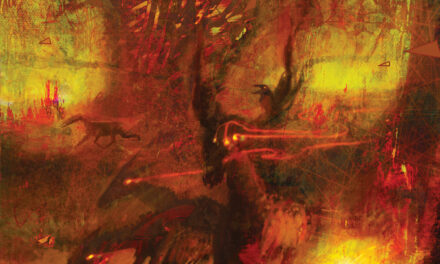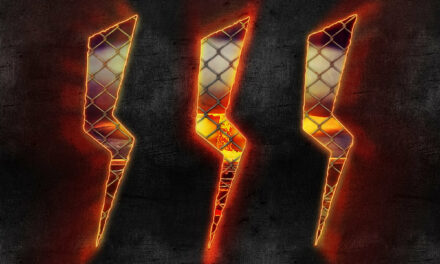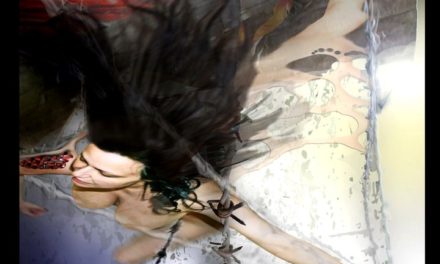
Korine
Tear
self-released
Philadelphia’s Korine have been forging a niche for themselves, plying a sound that splits the difference between indie synthpop, post-punk and more broad alternative sounds. The key to the duo’s appeal lies in the emotional sincerity they bring across in their recordings, a reflection of their engaging live show. New LP Tear highlights both the power and the shortcomings of their so-earnest-it-hurts approach; like its predecessor 2020’s The Night We Raise, it’s a record where the material is often elevated by the performance.
It should be noted that this is by far the most approachable and broadly accessible thing Korine have recorded to date, and it’s not like Trey Frye and Morgy Ramone were afraid to put their pop sensibilities out in front previously. Choruses have that singalong quality, arrangements are geared to give the songs lift and propulsion, and the instrumentation is all arranged in smart and unobtrusive fashion. What’s more, vocalist Ramone is showing some pop-punk leanings, tapping into that genre’s relatability and more importantly its catchiness. You can hear it in the delivery of cuts like the jaunty “Lost in the Dark” and “The More I Try”, both of which have enough synth and drum machine in the mix to keep them on this side of the genre divide. It’s a stylistic connection that a lot of very serious post-punk fans are unlikely to want to admit exists, but Korine pull it off with such unabashed confidence that you can’t deny it, although closer “Forevermore” does toe the line in a few spots.
That does bring up one of Korine’s weaknesses as an act – they’re so charming and inherent likabile that a lot of the sameyness in their songs is easy to overlook in the moment. Whether that’s an actual thing you can hang a critique on is a good question; if the record is fun to listen to does it matter that you can’t recall every moment in detail? Without getting bogged down in what it means to actually enjoy a piece of art, a listener can be hard-pressed to recall specifics of individual songs even moments after they finish. It’s partly a function of how the songs rely so heavily on Ramone’s charisma to get over, with multi-instrumentalist Frye’s guitar parts and the sound design never rising above tasteful to actually memorable. So much of Tear passes by in an enjoyable haze, with individual parts and melodies that dissolve like cotton candy on the tongue and leave little behind.
Still, there’s spots here that suggest Korine are refining their writing and applying some genuinely clever and transparent songcraft; you could listen to highlights like the anthemic “Burn the World” a dozen times without really twigging the way its chorus shadows the funky bounce of its verses, or how “Train to Harlem” bakes its hook into basically every moment of four minute run-time. Those moments of pop proficiency are where it’s apparent exactly what a force Korine is capable of being when their magnetism as an act and artistry are at the same level. While Tear falls short of seeing that potential fully realized, the times where it rises from winsome to straight-up great are magic.





